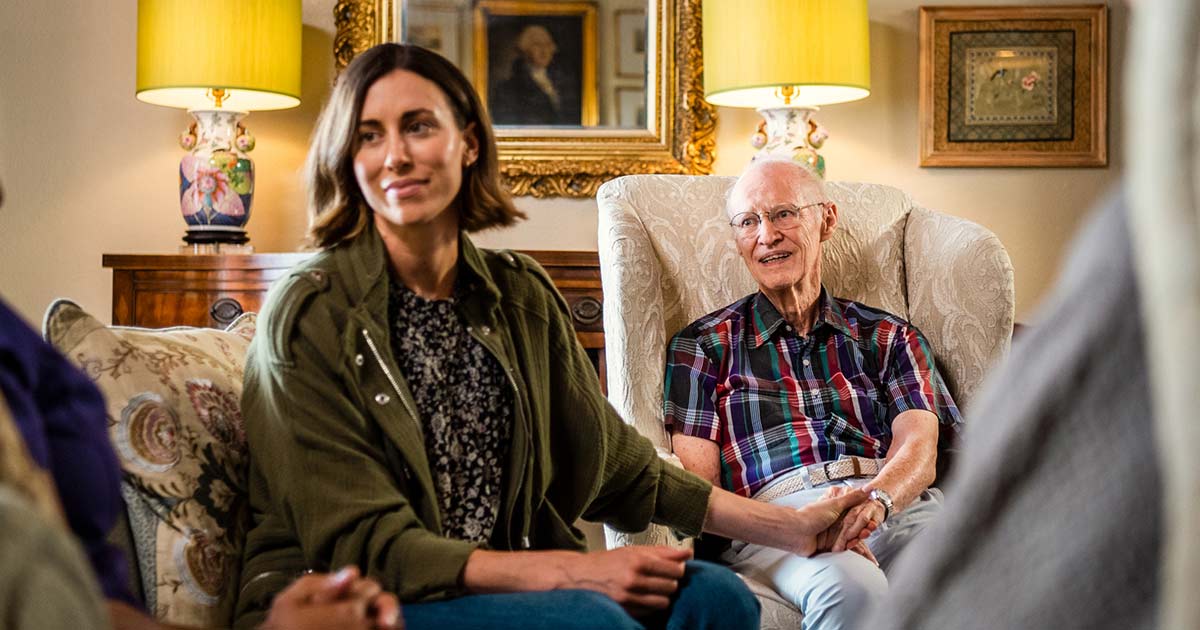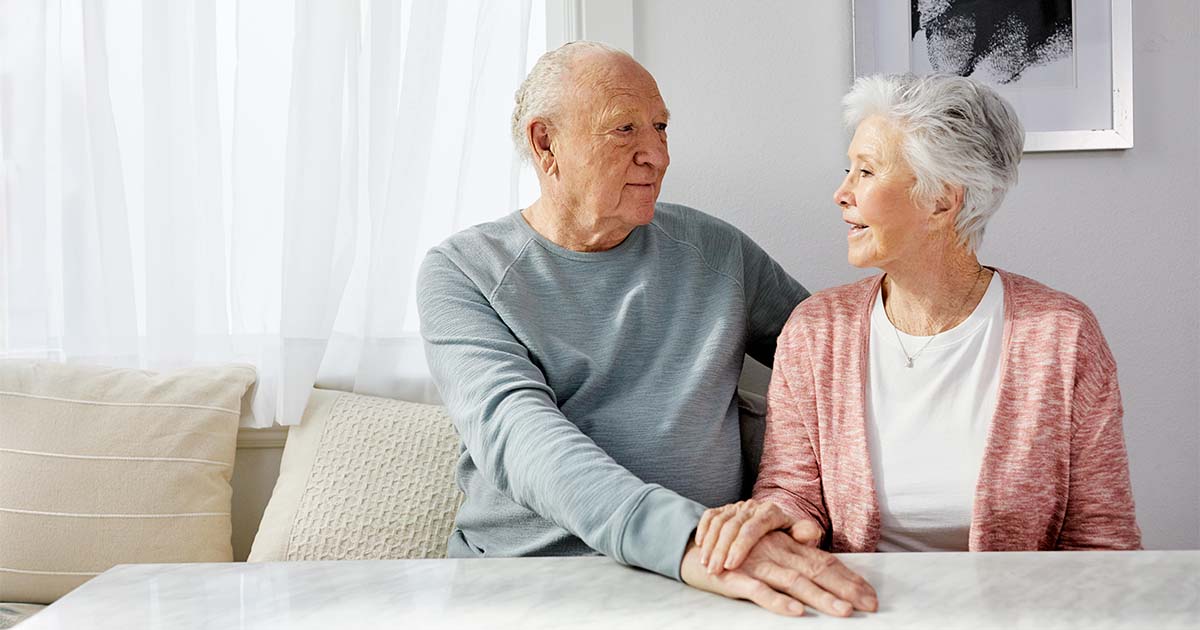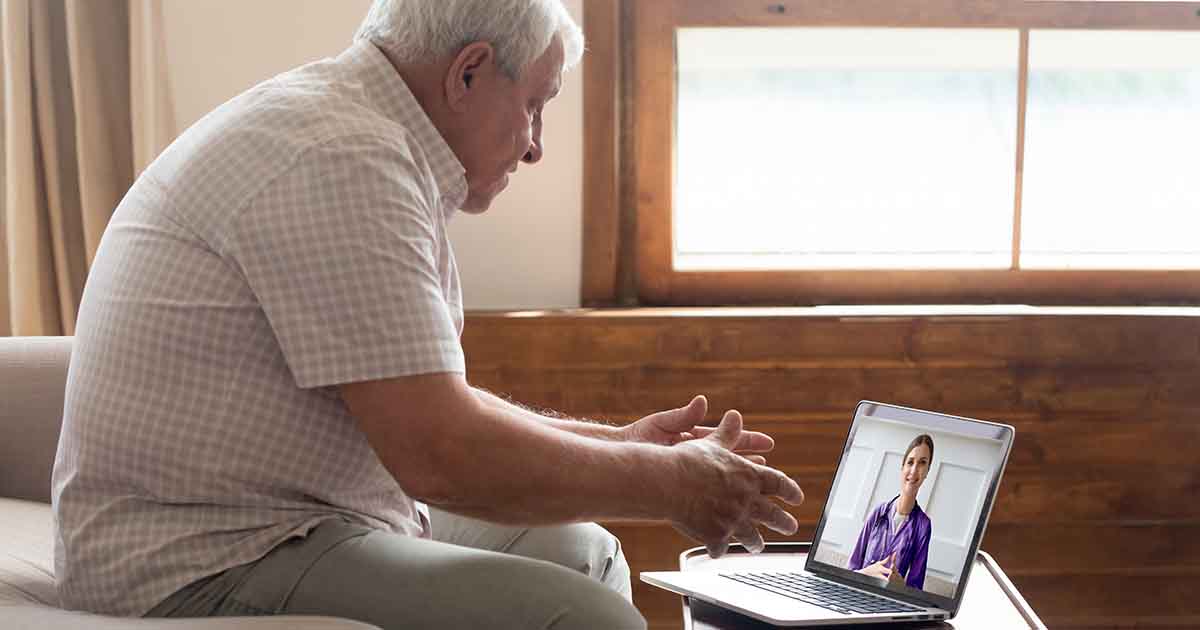If you are caring for an aging parent or family member, you may be unsure how to find the best solution that meets their health care goals and needs. Nonetheless, it is important to ensure they receive the help they need to stay safe and restore their health- and they can do so from the comfort of their home with home health care.
Determining what kind of care your loved one needs or qualifies for can feel overwhelming, but there are signs that may indicate your loved one could benefit from home health care as an option.
1. They were diagnosed with a chronic condition or their chronic condition has worsened.
Chronic conditions are defined as diseases that last one year or longer, require ongoing medical attention and can limit activities of daily living such as the ability to run errands, eat and bathe independently. The most common chronic diseases are heart disease, diabetes, respiratory disease, cancer, kidney disease, stroke, heart failure and hypertension.
If your loved one is living with one or more chronic conditions, home health can help them better manage their condition and help them achieve their specific care goals from the comfort of their home.
Oftentimes, home health patients find themselves needing hospice services depending on the progression of their disease. Your home health care team can also help you plan for the future, offering assistance in advance care planning and helping to begin discussions about end-of-life care.
2. They are recovering from a recent surgery.
It is important to have proper treatment and rehabilitation after surgery to avoid unnecessary trips back to the hospital, infections and other post-surgery complications. Home health care helps patients safely transition from the hospital to home, working closely with the patient’s care team to provide personalized care.
A home health team can also offer patient education, medication management and skilled therapy services to help patients achieve the best possible outcomes and keep them on the road to recovery.
3. They visit the hospital frequently.
The transition from a hospital stay back to the home can be a difficult process. The possibility of changes in medications and treatments for care might bring added anxiety and feelings of being overwhelmed.
Additionally, there is a high risk for negative outcomes and hospital readmissions due to potential miscommunication during the transition.
Home health care can bridge the gap and assist in providing a smooth transition from hospital to home. Home health clinicians will keep the lines of communication open with the patient’s care team, which includes their primary physicians. They will work collaboratively to ensure the patient is taking the correct medications at home and develop an individualized plan of care.
Also, home health care can help to mitigate non-emergent issues, resulting in a decreased number of trips to the hospital.
4. They have a need for wound healing.
Your loved one may have a surgical wound, diabetic ulcer, pressure injury or other wounds due to poor circulation or a complicated skin tear. Underlying conditions such as diabetes, heart disease or circulatory disorders may impact the healing of these wounds.
Home health care can help promote wound healing in a timely manner, manage the underlying condition and maximize communication with physicians to ensure the proper treatment and reduce complications.
Home health clinicians prioritize teaching and training on how to properly care for a wound. By providing information and hands-on training, you or your loved one can feel more confident in self-managing one’s care and recognizing the signs of infection.
5. They recently had a fall or decline in mobility.
A recent fall puts your loved one at risk for another fall. According to the Centers for Disease Control and Prevention (CDC), falls are the leading cause of injury among adults aged 65 years and older in the United States.
In 2018, there were more than 950,000 hospitalizations due to fall-related injuries among older adults.
There are many reasons why your loved one may be falling. It can be related to impaired vision, medications, chronic disease, surgical procedures, environmental and behavioral hazards or improper balance.
Home health care can help you and your loved one understand their fall risk, provide education on fall prevention, incorporate safety measures in the home, evaluate medications and develop a plan of care that is individualized to the patient’s needs.
Additionally, a home health care physical therapist can provide specialized exercise programs to improve balance, strength and safety in the home.
6. They have multiple medications or have changed or added new medications.
Proper medication management is a key aspect of the health and well-being of older adults. If medications are not managed appropriately, this could result in serious illness, emergency room visits or even hospitalization.
When beginning service with home health, clinicians complete a full medication assessment to ensure that the patient is taking the medications that the physician ordered. They check for medication interactions, provide medication education and recommend measures for safe medication practices in the home.
7. They’ve lost interest in activities they usually enjoy.
If you notice that your loved one is suddenly withdrawing from family events or activities they usually never missed, it’s often due to a greater underlying cause. They may have had a recent physical decline, have a current fear of falling or are experiencing a change in mental status.
Upon admission, the home health care team conducts a physical assessment, medication assessment and home safety assessment. The clinician will then work closely with the patient and their care team to determine what matters most to them and provide collaborative care based on the patient’s specific health care goals and preferences.
If you have further questions or think your loved one might benefit from home health, talk to your physician about a referral for home health care.
Social Share
At Enhabit our patients are our number one priority. From providing the latest medical practices to building deep personal connections, we’re focused on upholding every patient’s dignity, humanity and sense of control on their healthcare journey.
Home health
Our home health services give patients access to the care they deserve in the comfort of their own homes. From disease and injury management to recovery from surgery, our clinicians help patients confidently achieve their healthcare goals.
Hospice care
Our hospice care services place importance on the comfort of every patient living with a terminal illness. Our caring professionals are dedicated to providing not just physical care, but spiritual and emotional support to every patient and their loved ones.






